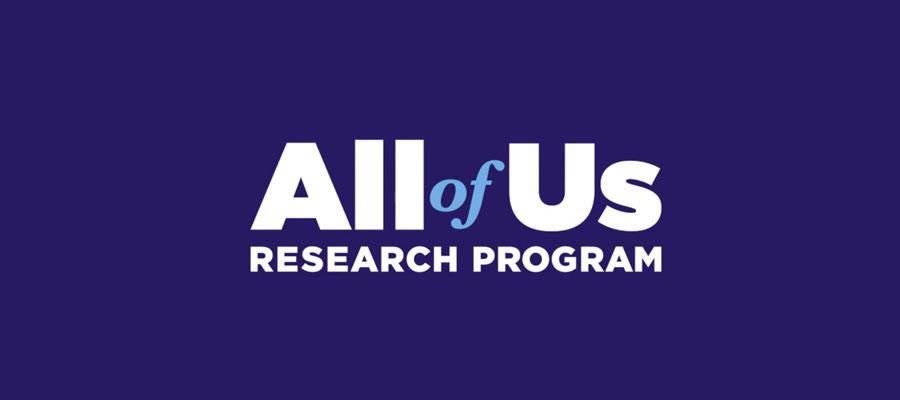NIH’s Dara Richardson-Heron: The Future of Health Begins with You

I want you to think for a minute about your eyes. Do you wear glasses? Does anyone you know wear glasses? Could they take those off and switch with someone just walking down the street?
Now I want you to think about your heart. If something went wrong, would you want the same medication they prescribe to someone of a different age, in a different part of the world, and with a different lifestyle? Here at the National Institutes of Health, we don’t think you should have to. We think health care should be more customized to you and all the things that make you unique.
We are imagining a world where this is possible. When patients come through your hospital’s door knowing they can determine their individual risk for a range of diseases, and get treatments prescribed that are tailored to them. But the reality is, we are not there yet. And we need you to help us get there.
The All of Us Research Program is a long-term effort to gather health information from 1 million or more people living in the United States, to accelerate research and biomedical breakthroughs. Our hope is that data collected from participants in the All of Us Research Program will allow researchers to examine the factors that influence health – and, in turn, lead to the development of more precise treatments and prevention strategies. All of Us is different than any other research program you are familiar with. We are aiming for the biggest, and most diverse, set of data available to researchers.
Racial and ethnic minorities, women, individuals in rural communities – these are examples of those who have been underrepresented in biomedical research in the past. And those are some of the people we are looking to include in All of Us. We approach this problem with respect and acknowledgement of why we lack this diversity. Even within the last 100 years, there have been terrible transgressions in biomedical research against vulnerable populations.
Those of you who volunteer for the All of Us Research Program are joining us on a critically important journey, and you are a partner at every step of the way. Participants in the program will be asked to share different kinds of information over time. We will start by collecting a limited set of standardized data from sources that will include surveys, electronic health records, physical measurements and biosamples (such as a blood and urine samples). The data types we collect will grow and evolve with science, technology, and trust.
We are hopeful that the research that All of Us makes possible will equip health care providers with the data they need to help tailor health care to individual patients. Precision medicine has been a concept in health care for a long time. We think it is the perfect time to dedicate the energy and resources to making it a greater reality. We are excited to partner with the American Hospital Association and urge you to learn more and see how you can help spread the word. Please visit www.joinallofus.org.
Dara Richardson-Heron, M.D., is the chief engagement officer of NIH’s All of Us Research Program. For more on the program, visit https://www.aha.org/all-us-research-program.

